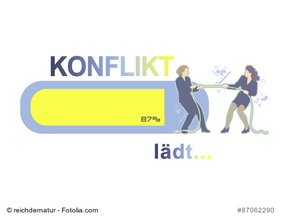The Alternative Dispute Resolution Act (AStG) implements the EU Directive 2013/11/EU of the European Parliament and of the Council of 21th May 2013 on the alternative settlement of consumer disputes in Austria. The law, which entered into force on 9th January 2016, regulates the procedure to be carried out by the specially established arbitration bodies ("alternative dispute resolution bodies"). This form of alternative dispute resolution relates to obligations arising from a contract for consideration between a trader established in Austria and a consumer residing in an EEA state. These alternative dispute resolution procedures aim to reach an amicable settlement and avoid court proceedings.
With the entry into force of the Act, the following conciliation bodies exist:
- the conciliation board of Energie-Control Austria,
- the Telecommunications Conciliation Board of Rundfunk und Telekom Regulierungs-GmbH,
- the Postal Conciliation Board of Rundfunk und Telekom Regulierungs-GmbH,
- the Passenger Rights Agency,
- the Joint Conciliation Board of the Austrian Banking Industry,
- the Internet Ombudsman,
- the Ombudsman for Prefabricated Houses and
- the conciliation board for consumer transactions.
Information obligations in case of alternative dispute resolution
In addition to regulations on the procedure to be applied by these ADR entities, section 19 of the ADR Act introduces new information obligations for traders, which apply equally in the online and offline sectors. A trader has to inform consumers about the ADR entity or entities by which he is covered, if he (voluntarily) undertakes or is (legally) obliged to involve these entities for the resolution of disputes with consumers. This information shall include details of the website address of the ADR entity or entities concerned.
The trader shall include this information, if available, on its website and, if applicable, in the general terms and conditions in a clear, comprehensible and easily accessible manner.
CAUTION: Irrespective of whether the trader has undertaken to participate in alternative dispute resolution, in the event of a specific dispute, i.e. if the trader and the consumer fail to reach an agreement in a dispute, the trader must inform the consumer on paper or another durable medium of the ADR entity or entities competent for him and at the same time indicate whether he will participate in a procedure.
Participation in such a procedure is therefore not obligatory for the trader, but the provision of information is. A violation of the information obligations constitutes an administrative offence under section 29 AStG, which can be punished with a fine of up to 750 euros. Therefore, it is advisable to update the imprint and GTC and to provide links to the website of the respective arbitration board in question.
Information requirements for online sales
In addition, the so-called ODR Regulation (Regulation No. 524/2013 on the Online Settlement of Consumer Disputes) is relevant for entrepreneurs who enter into online sales contracts or online service contracts, irrespective of whether the contract is concluded via classic webshops or via e-mail or other online sales forms. In addition to the above information obligations, such businesses must include a link to the so-called "Online Dispute Resolution Platform" of the EU (https://ec.europa.eu/consumers/odr), which must not be hidden but must be easy to find for consumers. In addition, such businesses have to provide their e-mail addresses, which is, however, already provided for under section 5 ECG.
It is advisable to set up access to the link directly on the homepage (e.g. by means of a button: "Online dispute resolution platform"). Whether inclusion in the imprint is sufficient has not yet been sufficiently clarified.





